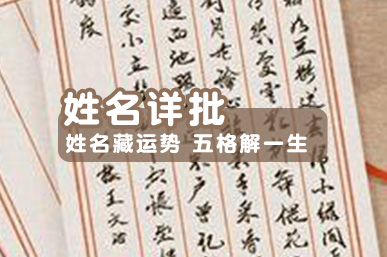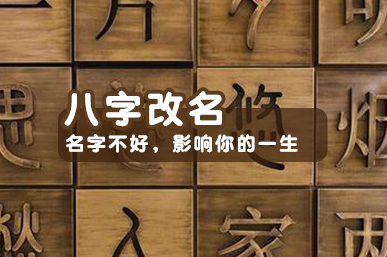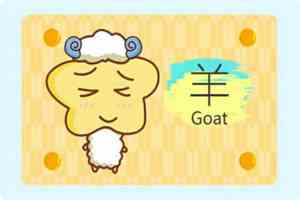

英美人的名字怎么起的?
英美人一般名字是由first name+(middle name)+last name组成。
first name=given name即给起的名或教名,因此 first name 在英美文化中也叫 Christian name (徒名),因为是婴儿受洗成为教徒时得到的名字,现在不举行洗礼,就只说given name。middle name类似小名(主要用来区分,并不重要,经常是首字母缩写大写)。last name=family name=surname家族姓氏,如Geoge W. Bush(W.=Walker ;sur- 前缀是 “追加” 的意思)。
名字为什么这么复杂,我们慢慢来理解。一开始,他们只有名,没有姓,大家都叫Tom,为了区分开彼此,就在名字后面+以下四类词——职业/居住地/特点/谁的儿子。
1.以职业名称为姓。
Carpenter木匠(卡彭特),Thatcher盖屋顶的人(撒切尔),Tailor裁缝,(泰勒), Smith工匠(史密斯),Baker面包师傅(贝克)Cook厨师(库克)carter车夫(卡特)(cart两轮马车/手推车+er人)。还有高端职业,King国王(金),Pope教皇(波普)
(gold smith金匠,silver smith银匠,copper smith铜匠,black smith铁匠)
2.以居住地为姓
居住的城镇或村庄的名称为姓,比如York(约克),Kent(肯特)等。如Jack London。
居住地附近的地形地貌为姓。如:Moor穆尔(荒野),Hill希尔(小山),Wood伍德(树林)等。具体如Tiger Woods老虎伍兹(树林)George W. Bush乔治布什(灌木丛)Winter Churchill丘吉尔(church+hill山上的教堂)
3.以特点为姓,比如肤色,发色,身体等各种特点。
Brown布朗(棕色)
Black布莱克(黑色)
White怀特(白色)
Neil Alden Armstrong尼尔奥尔登阿姆斯特朗(胳膊强壮)
William Shakespeare威廉莎士比亚(shake+spear+e,颤动+矛+e没有含义)
4.谁家的儿子(谁家那小谁)
Robinson罗宾逊(Robin+son罗宾的儿子)
Thompson汤姆逊(Thomp+son汤姆的儿子)
Johnson约翰逊(John+son约翰的儿子)
Jackson杰克逊(Jack+son杰克的儿子)
5.补充:也有用名人的名字,神的名字,或是随随便便起的名字。
二 为什么有的外国人名字里有缩写?
1.缩写中间,例如George W. Bush乔治布什(灌木丛)。
首先,不是每个老外都有中间名,就算有,他们的中间名出镜率也很低;而且很多时候中间名都是以缩写的方式出现,所以很多时候甚至是闺蜜都彼此不知道对方的中间名叫什么。例如,前英国首相布莱尔的全名就是 Anthony Charles Lynton Blair,或者Anthony C. L. Blair,有两个中间名。
那么中间名到底是干嘛用的呢?如果真的没啥用,为什么大部分老外都会给小宝宝取中间名呢?答案是:“区别同名同姓的人!”
如果姓和名都很常见的话,例如 John Smith,那么多取几个中间名就可以减少同名同姓的机会,例如 John Peter Luke Smith (John P. L. Smith) 跟 John Peter Charles Smith (John P. C. Smith)。
因为 middle name 主要的用途只是用来增加名字的独特性和区分两个相同 first name 和 last name 的持有人,所以中间名往往只以缩写的形式出现就足以发挥它的作用了,一般只在护照、驾照、法庭宣判等会看到自己的中间名(全名)
2.缩写前面,如A. Boris Johnson鲍里斯·约翰逊。
他的全名是 Alexander Boris Johnson,也就是说他真正的 first name 其实是 Alexander。但是后来因为不喜欢 first name改喜欢middle name了,于是决定弃用,转而使用他比较喜欢的 Boris 作为主要的名字。如果有人决定把自己的中间名作为主要使用的名字,他们就会把不喜欢的 first name 变成缩写,例如 A. Boris Johnson。这么一来当事人不需要去政府机关办理正式改名,因为 A. 还是保留了,他自称 Boris 也没有说谎,Boris 也不是化名而是真名,而且当事人也没有否认自己的 first name 叫 Alexander 的事实,只不过是用缩写 A. 的方式让它保持低调,而同一时间凸显出自己喜欢的 Boris 这个名字 。
3.常见的中间名取名方式:
父母在给孩子取名的时候怎么决定要给孩子什么名字当做中间名呢?常见的做法是用孩子的祖父母的 first name 当做孩子的中间名。例中间名往往是纪念性的(向先人致敬、尊崇先烈、以宗教圣人命名以求保佑等等...),而且实际使用的机会很少,因此中间名偶尔会是 “姓”(例如总统的中间名是 Jefferson),又或者偶尔会出现父母给男孩取女性的中间名或给女孩取男性的中间名(例如:Mary James Smith),如孩子叫做 Harry Tim Smith,可能他爷爷叫Tim。
4.英美名字的一世二世三世是怎么回事?
为了区分老子和儿子,老子就会在自己的名字后面加后缀 Sr,儿子的名字也会有后缀 Jr,分别是 Senior 和 Junior 的缩写。
就拿美国历任领导人为例:
拜登总统的名字其实是 Joe Biden, Jr (“小”拜登)。
奥巴马总统的名字其实是 Barack Obama, II (奥巴马二世)。
如果祖、父、孙三代同堂都取同样的名字(OMG!)哈哈哈,那爷爷的后缀是 Sr,父亲的后缀是 Jr,孙子用的后缀是 III(三世)。
英国国王祖孙三代可以写作,如祖King Charles Ⅰ;父King CharlesⅡ;孙 King Charles Ⅲ。
总统出生的时候原本叫做 William Jefferson Blythe, III (布莱斯三世,布莱斯是他生父的姓,而是他继父的姓)。
还有不久之前拍戏时枪意外走火的明星 亚历克·鲍德温,他的正式的名字是 Alec Baldwin, III (鲍德温三世)。
III 三世的念法是:Alec Baldwin "the third",IV 四世 "the fourth"... 以此类推。
#挑战30天在头条写日记#
中英法三语对照《论语》公冶长篇
中英法三语对照《论语》 公冶长篇
英文译本,选自理雅各先生的译文(James Legge,1815年-1897年)
法语译本,选自顾赛芬先生的译文(Séraphin Couvreur, 1835-1919)
此对照本,在编排过程中,以中文原文为基准,在不改变译文任何内容的前提下,依据中文原文,逐条核对,逐条对照。同时,也对译文的编排稍稍做了些订正,调整,使其与原文内容的顺序和意思,更加一致。期望这些小小的修整,能更加便于大家的阅读与学习。
以下为三语公冶长篇的逐条对照版,仅供大家参考,不足之处,也请指正。
5.1 子谓公冶长,“可妻也。虽在缧绁之中,非其罪也。”以其子妻之。(5.1)
V.1. Le Maître dit que Koung ie Tch’ang était un homme à qui l’on pouvait convenablement donner une fille en mariage ; que, bien qu’il fût dans les fers, il n’avait mérité aucun châtiment. Il lui donna sa fille en mariage.
The Master said of Kung-ye Ch'ang that he might be wived; although he was put in bonds, he had not been guilty of any crime. Accordingly, he gave him his own daughter to wife.
5.2 子谓南容,“邦有道,不废;邦无道,免于刑戮。”以其兄之子妻之。(5.2)
Le Maître dit que Nan Ioung, dans un État bien gouverné, aurait toujours une charge ; que, dans un État mal gouverné, il saurait échapper aux tourments et à la peine capitale. Il lui donna en mariage la fille de son frère.
Of Nan Yung he said that if the country were well governed he would not be out of office, and if it were in governed, he would escape punishment and disgrace. He gave him the daughter of his own elder brother to wife.
5.3 子谓子贱,“君子哉若人!鲁无君子者,斯焉取斯?”(5.3)
V.3. Le Maître dit de Tzeu tsien¹ : « Quel homme honorable ! Si la principauté de Lou n’en comptait pas, où celui-ci aurait-il puisé un tel sens d’humanité ? »
The Master said of Tsze-chien, "Of superior virtue indeed is such a man! If there were not virtuous men in Lu, how could this man have acquired this character?"
5.4 子贡问曰:“赐也何如?”子曰:“女,器也。”曰:“何器也?”曰:“瑚琏也。”(5.4)
V.4. Tzeu koung demanda : « Que dites-vous de moi ? » Le Maître répondit : « Vous êtes un vase¹. » Tzeu koung reprit : « Quel vase ? – Un vase pour les offrandes », dit Confucius.
Tsze-kung asked, "What do you say of me, Ts'ze!" The Master said, "You are a utensil." "What utensil?" "A gemmed sacrificial utensil."
5.5 或曰:“雍也仁而不佞。”子曰:“焉用佞?御人以口给,屡憎于人。不知其仁,焉用佞?”(5.5)
V.4. Quelqu’un dit : « Ioung¹ est très vertueux, mais peu habile à parler. » Le Maître répondit : « Que sert d’être habile à parler ? Ceux qui reçoivent tout le monde avec de belles paroles, qui viennent seulement des lèvres, et non du cœur, se rendent souvent odieux. Je ne sais si Ioung est vertueux ; mais que lui servirait d’être habile à parler ? »
Some one said, "Yung is truly virtuous, but he is not ready with his tongue." The Master said, "What is the good of being ready with the tongue? They who encounter men with smartness of speech for the most part procure themselves hatred. I know not whether he be truly virtuous, but why should he show readiness of the tongue?"
5.6 子使漆彤开仕。对曰:“吾斯之未能信。”子说。(5.6)
V.5. Le Maître ayant engagé Ts’i tiao K’ai à exercer une charge, celui-ci répondit : « Je ne me sens pas encore digne de foi. » Cette réponse réjouit le Maître.
The Master was wishing Ch'i-tiao K'ai to enter an official employment. He replied, "I am not yet able to rest in the assurance of this." The Master was pleased.
5.7 子曰:“道不行,乘桴浮于海。从我者,其由与?”子路闻之喜。子曰:“由也好勇过我,无所取材。”(5.7)
V.6. Le Maître dit : « Ma Voie n’est pas suivie. Si je montais sur un radeau et me confiais aux flots de la mer¹, celui qui me suivrait, ne serait-ce pas Iou² ? » Tzeu lou, entendant ces paroles, en éprouva une grande joie. Le Maître dit : « Iou, tu as plus d’audace que moi ; mais tu n’as pas le discernement nécessaire pour bien juger³. »
The Master said, "My doctrines make no way. I will get upon a raft, and float about on the sea. He that will accompany me will be Yu, I dare say." Tsze-lu hearing this was glad, upon which the Master said, "Yu is fonder of daring than I am. He does not exercise his judgment upon matters."
5.8 孟武伯问子路仁乎?子曰:“不知也。”又问。子曰:“由也,千乘之国,可使治其赋也,不知其仁也。” “求也何如?”子曰:“求也,千室之邑,百乘之家,可使为之宰也,不知其仁也。” “赤也何如?”子曰:“赤也,束带立于朝,可使与宾客言也,不知其仁也。”(5.8)
V.7. Meng Ou pe demanda si le sens humain de Tzeu Iou était parfait. Le Maître répondit : « Je ne le sais pas. » Meng Ou pe renouvela la même question. Le Maître répondit : « Iou est capable de former les troupes d’une principauté qui possède mille chariots de guerre. Je ne sais pas si son sens humain est parfait. – Que pensez-vous de K’iou ? » Le Maître répondit : « K’iou est capable de gouverner une ville de mille familles, ou la maison d’un grand préfet, qui a cent chariots de guerre. Je ne sais pas si son sens humain est parfait. » Meng Ou pe demanda : « Que dites-vous de Tch’eu¹ ? » Le Maître répondit : « Tch’eu serait capable de se tenir en habits de cour² auprès d’un prince, et de converser avec les hôtes et les visiteurs. Je ne sais pas si son sens humain est parfait. »
Mang Wu asked about Tsze-lu, whether he was perfectly virtuous. The Master said, "I do not know." He asked again, when the Master replied, "In a kingdom of a thousand chariots, Yu might be employed to manage the military levies, but I do not know whether he be perfectly virtuous." "And what do you say of Ch'iu?" The Master replied, "In a city of a thousand families, or a clan of a hundred chariots, Ch'iu might be employed as governor, but I do not know whether he is perfectly virtuous." "What do you say of Ch'ih?" The Master replied, "With his sash girt and standing in a court, Ch'ih might be employed to converse with the visitors and guests, but I do not know whether he is perfectly virtuous."
5.9 子谓子贡曰:“女与回也,孰愈?”对曰:“赐也,何敢望回?回也,闻一以知十;赐也,闻一以知二。”子曰:“弗如也;吾与女弗如也。”(5.9)
V.8. Le Maître dit à Tzeu koung : « Lequel des deux l’emporte sur l’autre, de toi ou de Houei ? »Tzeu koung répondit : « Comment oserais-je me mettre en parallèle avec Houei ? Il suffit à Houei d’entendre expliquer une chose pour qu’il en comprenne dix. Moi, quand j’en ai entendu expliquer une, je n’en comprends que deux. » Le Maître dit : « Tu lui es inférieur ; je suis de ton avis, tu lui es inférieur. »
The Master said to Tsze-kung, "Which do you consider superior, yourself or Hui?" Tsze-kung replied, "How dare I compare myself with Hui? Hui hears one point and knows all about a subject; I hear one point, and know a second." The Master said, "You are not equal to him. I grant you, you are not equal to him."
5.10 宰予昼寝。子曰:“朽木不可雕也,粪土之墙不可杇也。于予与何诛?”子曰:“始吾于人也,听其言而信其行;今吾于人也,听其言而观其行。于予与改是。”(5.10)
V.9. Tsai Iu restait au lit pendant le jour. Le Maître dit : « Un morceau de bois pourri ne peut être sculpté ; un mur de fumier et de boue ne peut être crépi. Que sert de réprimander Iu ? Auparavant, quand j’avais entendu parler un homme, je croyais que sa conduite répondait à ses paroles. A présent, quand j’ai entendu parler un homme, j’observe ensuite si ses actions répondent à ses paroles. C’est Iu qui m’a fait changer la règle de mes jugements. »
Tsai Yu being asleep during the daytime, the Master said, "Rotten wood cannot be carved; a wall of dirty earth will not receive the trowel. This Yu,-what is the use of my reproving him?" The Master said, "At first, my way with men was to hear their words, and give them credit for their conduct. Now my way is to hear their words, and look at their conduct. It is from Yu that I have learned to make this change."
5.11 子曰:“吾未见刚者。”或对曰:“申枨。”子曰:“枨也欲,焉得刚?”(5.11)
V.10. Le Maître dit : « Je n’ai pas encore vu un homme qui eût une fermeté d’âme inflexible. » Quelqu’un dit : « Chenn Tch’ang. » Le Maître répondit : « Tch’ang est l’esclave de ses passions ; comment aurait-il de la fermeté d’âme ? »
The Master said, "I have not seen a firm and unbending man." Some one replied, "There is Shan Ch'ang." "Ch'ang," said the Master, "is under the influence of his passions; how can he be pronounced firm and unbending?"
5.12 子贡曰:“我不欲人之加诸我也,吾亦欲无加诸人。”子曰:“赐也,非尔所及也。”(5.12)
V.11. Tzeu koung dit : « Ce que je ne veux pas que les autres me fassent, je désire ne pas le faire aux autres. » Le Maître répondit : « Seu, tu n’as pas encore atteint cette perfection. »
Tsze-kung said, "What I do not wish men to do to me, I also wish not to do to men." The Master said, "Ts'ze, you have not attained to that."
5.13 子贡曰:“夫子之文章,可得而闻也;夫子之言性与天道,不可得而闻也。”(5.13)
V.12. Tzeu koung dit : « Il est donné à tous les disciples d’entendre les leçons du Maître sur la tenue du corps et les bienséances, mais non ses enseignements sur la nature profonde de l’homme et la Voie du Ciel. »
Tsze-kung said, "The Master's personal displays of his principles and ordinary descriptions of them may be heard. His discourses about man's nature, and the way of Heaven, cannot be heard."
5.14 子路有闻,未之能行,唯恐有闻。(5.14)
V.13. Quand Tzeu Iou avait reçu un enseignement, il craignait d’en recevoir un nouveau, jusqu’à ce qu’il fût parvenu à mettre en pratique le premier.
When Tsze-lu heard anything, if he had not yet succeeded in carrying it into practice, he was only afraid lest he should hear something else.
5.15 子贡问曰:“孔文子何以谓之‘文’也?”子曰:“敏而好学,不耻下问,是以谓之‘文’也。”(5.15)
V.14. Tzeu koung demanda pourquoi K’oung Wenn tzeu¹ avait reçu après sa mort le nom de Wenn, le « Cultivé ». Le Maître répondit : « Bien qu’il fût très intelligent, il aimait à être enseigné ; il n’avait pas honte d’interroger même ses inférieurs. C’est pour cette raison qu’il a reçu le nom posthume de Wenn. »
Tsze-kung asked, saying, "On what ground did Kung-wan get that title of Wan?" The Master said, "He was of an active nature and yet fond of learning, and he was not ashamed to ask and learn of his inferiors!-On these grounds he has been styled Wan."
5.16 子谓子产,“有君子之道四焉:其行己也恭,其事上也敬,其养民也惠,其使民也义。”(5.16)
V.15. Le Maître dit que Tzeu tchang¹ pratiquait parfaitement quatre qualités de l’homme honorable, à savoir la déférence envers ses égaux, le respect envers ses supérieurs, la bienfaisance envers le peuple, la justice envers ses sujets.
The Master said of Tsze-ch'an that he had four of the characteristics of a superior man-in his conduct of himself, he was humble; in serving his superior, he was respectful; in nourishing the people, he was kind; in ordering the people, he was just."
5.17 子曰:“晏平仲善与人交,久而敬之。”(5.17)
V.16. Le Maître dit : « Ien P’ing tchoung¹ est admirable dans ses relations avec ses amis ; leur intimité eût-elle duré depuis longtemps, il les traite toujours avec respect. »
The Master said, "Yen P'ing knew well how to maintain friendly intercourse. The acquaintance might be long, but he showed the same respect as at first."
5.18 子曰:“藏文仲居蔡,山节藻梲,何如其知也?”(5.18)
V.17. Le Maître dit : « Tsang Wenn tchoung a fait bâtir, pour loger une grande tortue, un édifice où la sculpture a figuré des montagnes sur les chapiteaux des colonnes, et la peinture a représenté des algues marines sur les colonnettes du toit. Peut-on dire que ce soit un homme éclairé ? »
The Master said, "Tsang Wan kept a large tortoise in a house, on the capitals of the pillars of which he had hills made, and with representations of duckweed on the small pillars above the beams supporting the rafters.-Of what sort was his wisdom?"
5.19 子张问曰:“令尹子文三仕为令尹,无喜色;三已之,无愠色。旧令尹之政,必以告新令尹。何如?”子曰:“忠矣。”曰:“仁矣乎?”曰:“未知;—焉得仁!” “崔子杀齐君,陈文子有马十乘,弃而违之。至于他邦,则曰,‘犹吾大崔子也。’违之;之一邦,则又曰:‘犹吾大夫崔子也。’违之。何如?”子曰:“清矣。”曰:“仁矣乎?”子曰:“未知;—焉得仁?”(5.19)
V.18. Tzeu tchang dit : « Tzeu wenn [Premier ministre de Tch’ou] fut trois fois nommé Premier ministre ; il n’en manifesta aucune joie. Il fut trois fois dépouillé de sa charge ; il n’en manifesta aucun mécontentement. En quittant la charge de Premier ministre, il faisait connaître à son successeur ses actes administratifs. Que faut-il penser de lui ? » Le Maître dit : « Il a été loyal. » Tzeu tchang reprit : « A-t-il fait preuve d’humanité ? » Le Maître répondit : « Je ne le sais pas ; [son indifférence pour les charges] est-elle un signe d’humanité ? »
Tzeu tchang dit : « Ts’ouei tzeu, ayant tué son prince, le Prince de Ts’i Tch’enn Wenn tzeu¹, abandonna ses dix attelages de quatre chevaux, et quitta sa terre natale². Arrivé dans une autre principauté, il dit : “Ici les officiers ressemblent à notre grand préfet Ts’ouei tzeu”. Et il s’en alla. Quand il arrivait dans une nouvelle principauté, il disait toujours : “Ici les officiers ressemblent à notre grand préfet Ts’ouei tzeu”. Et il se retirait. Que faut-il penser de lui ? » Le Maître répondit : « C’était un pur. » Tzeu tchang reprit : « A-t-il fait preuve d’humanité ? » Confucius, répondit : « Je ne le sais pas. En quoi est-ce de l’humanité ? ».
5.19 子张问曰:“令尹子文三仕为令尹,无喜色;三已之,无愠色。旧令尹之政,必以告新令尹。何如?”子曰:“忠矣。”曰:“仁矣乎?”曰:“未知;—焉得仁!” “崔子杀齐君,陈文子有马十乘,弃而违之。至于他邦,则曰,‘犹吾大崔子也。’违之;之一邦,则又曰:‘犹吾大夫崔子也。’违之。何如?”子曰:“清矣。”曰:“仁矣乎?”子曰:“未知;—焉得仁?”(5.19)
Tsze-chang asked, saying, "The minister Tsze-wan thrice took office, and manifested no joy in his countenance. Thrice he retired from office, and manifested no displeasure. He made it a point to inform the new minister of the way in which he had conducted the government; what do you say of him?" The Master replied. "He was loyal." "Was he perfectly virtuous?" "I do not know. How can he be pronounced perfectly virtuous?" Tsze-chang proceeded, "When the officer Ch'ui killed the prince of Ch'i, Ch'an Wan, though he was the owner of forty horses, abandoned them and left the country. Coming to another state, he said, 'They are here like our great officer, Ch'ui,' and left it. He came to a second state, and with the same observation left it also;-what do you say of him?" The Master replied, "He was pure." "Was he perfectly virtuous?" "I do not know. How can he be pronounced perfectly virtuous?"
5.20 季文子三思而后行。子闻之,曰:“再,斯可矣。”(5.20)
V.19. Ki Wenn tzeu réfléchissait trois fois avant de faire une chose. Le Maître, l’ayant appris, dit : « Il suffit de réfléchir deux fois. »
Chi Wan thought thrice, and then acted. When the Master was informed of it, he said, "Twice may do."
5.21 子曰:“宁武子,邦有道,则知;邦无道,则愚。其知可及也;其愚不可及也。”(5.21)
V.20. Le Maître dit : « Gning Ou tzeu se montra intelligent, tant que l’État fut bien gouverné, et affecta la stupidité, quand l’État fut mal gouverné. Son intelligence peut être imitée ; sa stupidité est au-dessus de toute imitation. »
The Master said, "When good order prevailed in his country, Ning Wu acted the part of a wise man. When his country was in disorder, he acted the part of a stupid man. Others may equal his wisdom, but they cannot equal his stupidity."
5.22 子在陈曰:“归与!归与!吾党之小子狂简,斐然成章,不知所以裁之。”(5.22)
V.21. Le Maître, étant dans la principauté de Tch’enn, dit : « Retournons, retournons dans la principauté de Lou ! Les disciples que j’avais dans mon pays brûlent d’ambition et sont d’une distinction remarquable. Mais ils ne savent pas comment régler ces bonnes qualités. »
When the Master was in Ch'an, he said, "Let me return! Let me return! The little children of my school are ambitious and too hasty. They are accomplished and complete so far, but they do not know how to restrict and shape themselves."
5.23 子曰:“伯夷、叔齐不念旧恶,怨是用希。”(5.23)
V.22. Le Maître dit : « Pe i et Chou ts’i¹ oubliaient les défauts passés d’autrui ; aussi avaient-ils peu d’ennemis. »
The Master said, "Po-i and Shu-ch'i did not keep the former wickednesses of men in mind, and hence the resentments directed towards them were few."
5.24 子曰:“孰谓微生高直?或乞醯焉,乞诸邻而与之。”(5.24)
V.23. Le Maître dit : « Qui pourra encore louer la droiture de Wei cheng Kao¹ ? Quelqu’un lui ayant demandé du vinaigre, il en demanda lui-même à l’un de ses voisins pour le lui donner. »
The Master said, "Who says of Weishang Kao that he is upright? One begged some vinegar of him, and he begged it of a neighbor and gave it to the man."
5.25 子曰:“巧言、令色、足恭,左丘明耻之,丘亦耻之。匿怨而友其人,左丘明耻之,丘亦耻之。”(5.25)
V.24. Le Maître dit : « Chercher à plaire par un langage étudié, prendre un extérieur trop composé, donner des marques de déférence excessives, c’est ce que Tsouo K’iou ming aurait rougi de faire ; moi aussi, j’en aurais honte. Haïr un homme au fond du cœur et le traiter amicalement, c’est ce que Tsouo K’iou ming aurait rougi de faire ; moi aussi, j’en aurais honte. »
The Master said, "Fine words, an insinuating appearance, and excessive respect;-Tso Ch'iu-ming was ashamed of them. I also am ashamed of them. To conceal resentment against a person, and appear friendly with him;-Tso Ch'iu-ming was ashamed of such conduct. I also am ashamed of it."
5.26 颜渊、季路侍。子曰:“盍各言尔志?”子路曰:“愿车马、衣轻裘,与朋友共,蔽之而无憾。”颜渊曰:“愿无伐善,无施劳。”子路曰:“愿闻子之志。”子曰:“老者安之,朋友信之,少者怀之。”(5.26)
V.25. Le Maître dit à Ien Iuen et à Tzeu lou, qui se tenaient auprès de lui : « Pourquoi ne me diriez-vous pas chacun quels seraient vos désirs ? » Tzeu lou répondit : « Je désirerais partager avec mes amis l’usage de mes voitures, de mes chevaux, de mes tuniques garnies de fine fourrure ; et, si mes amis les maltraitaient ou les gâtaient, n’en éprouver aucun mécontentement. »
Tzeu lou répondit : « On doit partager avec tout l’univers l’usage des choses de tout l’univers. ». Ien Iuen dit : « Je désirerais ne pas vanter mes bonnes qualités, ne pas exagérer mes bons services¹. » Tzeu lou reprit : « Maître, je serais heureux d’apprendre quel serait votre désir. » Le Maître répondit : « Apaiser les vieillards, mériter la confiance de mes amis, attirer l’affection des jeunes gens. »
Yen Yuan and Chi Lu being by his side, the Master said to them, "Come, let each of you tell his wishes." Tsze-lu said, "I should like, having chariots and horses, and light fur clothes, to share them with my friends, and though they should spoil them, I would not be displeased."
Yen Yuan said, "I should like not to boast of my excellence, nor to make a display of my meritorious deeds."
Tsze-lu then said, "I should like, sir, to hear your wishes." The Master said, "They are, in regard to the aged, to give them rest; in regard to friends, to show them sincerity; in regard to the young, to treat them tenderly."
5.27 子曰:“已矣乎!吾未见能见其过,而自讼者也。”(5.27)
V.26. Le Maître dit : « Faut-il donc désespérer de voir un homme qui reconnaisse ses fautes, et se les reproche en secret ? Moi, je n’en ai pas encore vu. »
The Master said, "It is all over. I have not yet seen one who could perceive his faults, and inwardly accuse himself."
5.28 子曰:“十室之邑,必有忠信如丘者焉,不如丘之好学也。”(5.28)
V.27. Le Maître dit : « Dans un village de dix familles il se trouve certainement des hommes à qui la nature a donné, comme à moi, des dispositions à la fidélité et à la sincérité ; mais il n’en est pas qui aiment autant que moi l’étude¹. »
The Master said, "In a hamlet of ten families, there may be found one honorable and sincere as I am, but not so fond of learning."
谈情说爱,谈婚论嫁,这26个英文单词就是筛选淑人的公式真经
个少男不善钟情,哪个少女不善怀春?
西南联大时期,许渊冲、万兆凤、刘兆南等学子,也正是情窦初开之际,在紧张学习、经常“跑警报”之余,他们也经常聚在一起,饶有兴致地谈起女性,关心老师的婚姻,八卦同学的恋爱,甚至自己开始懵懂追求女生。
那么,谈爱找媳妇,对方哪一条最重要,外貌、性格、学历、工作、收入、家庭、财富、兴趣……最优选应该是哪些项,哪些组合?年轻懵懂的西南联大才子,此时第一次开始了自己的独立思考。
有一天,许渊冲与同学吴琼、何国基、陈梅等到昆明黑龙潭和中正医学院去玩,了解到一位漂亮的女同学丘建春由文科改为理科,归途中一帮人自然而然地大谈特谈起了未来谈爱择偶的标准。
不知道是哪个人出的主意,最后大家决定以26个英文字母,凑出26个男人未来谈婚论嫁时看重的女性品格,也就是26个英文单词,并且最后统一意见,按其重要性对它们进行了排序:
Ability(能力),Beauty(美丽),Character(性格),Degree(学历),Equality(平等),Family(家庭),Generosity(大气),Health(健康),Idea(主见),Justice(正派),Kindness(友善),Love(爱心),Manner(风度),
Nicety(雅兴),Optimism(乐观),Property(财富),Qualifacation(资历),Respect(尊重),Spirit(心灵),Trust(信任),Unity(言行一致),Virginity(静如处子),Work(工作),X--radiation(透明),Youth(青春),Zeal(热心)。
关于这个话题,归途中争论很激烈。如许渊冲和吴琼就是“外貌协会”的,认为美最重要,而其他的人却说性格关系更大。许渊冲说:“大家争个不亦乐乎,乐而忘倦,简直是归途恨短了。”
这个标准和排序,虽是一时兴起之作,但不可否认的是,他们都言中了要害。你看,才子们把性格、能力、学历、家庭和健康都放在较靠前的位置,反映的是一种传统守正务实理性的婚恋观——
性格即命运,能力即经济,学历即层次,家庭即幸福,健康即财富。两个人,一个家,如果性格不合,就是灾难;如果没有能力,就会穷困;如果没有学历,就会无语;如果家庭不好,就会拖累;如果没有健康,就是悲哀。
当然,世界上没有完美的恋人和爱人。西南联大才子所论所列,基本囊括了一个理想中的恋人和爱人所须具备的最重要的品质,代表的是他们的观点,但放在今天,仍然具有普适性和参考价值。
如果是我,假如爱情可以重临,婚姻可以重来,我会选择这样一个组合:CADFHRBN。经历了沧桑岁月的洗礼,我明白,只有性格、能力和健康才是花开不败的幸福,美貌不能当饭吃。
不过,好多人应该看得出来,这里面好多东西是矛盾的。
比如,你找一个能力很强的妻子,又想在家庭中得到她的尊重,几乎是妄想。所以,我们选择恋人爱人的时候,不能求全,一定要选择自己最看重的要素,同时摒弃掉那些不太重要和自己讨厌的东西,比如风度,比如猜忌。
如果硬要在这中间抽去一些选项,那我宁愿抽掉A,加进N、R、W,使它变成CDWRHFN。就是希望找一个性格好、有学历、有工作、尊重人、健康且家境好,长相过得去还有一点爱好的妻子。
换作是你,会做怎样的排列组合和选择呢?CBA?CUBA?还是别的组合?你相信用这26个英文单词,能“套”到一个理想的意中人吗?


















